Fragility, Conflict and Violence
Number of results stories covering this topic: 32

Enhancing regional knowledge on effective participatory development models to address Fragility, Conflict and Violence risks in West and Central Africa
Building on previous knowledge-exchange initiatives at the World Bank, this platform aimed to: (i) consolidate operational knowledge on participatory local development and service delivery in Fragile, Conflict and Violence (FCV) contexts in the region; (ii) support the sharing of this knowledge between neighboring countries with varying experience…

Strengthening the Disability Inclusion Agenda in Cameroon, Nigeria and Sierra Leone
A knowledge exchange and peer learning program were carried out virtually due to COVID-19 restrictions through a series of webinars, bringing together practitioners and representatives of key ministries and public agencies, as well as Civil Society Organizations (CSOs), and Organizations of persons with disabilities (OPDs) from Cameroun, Nigeria,…
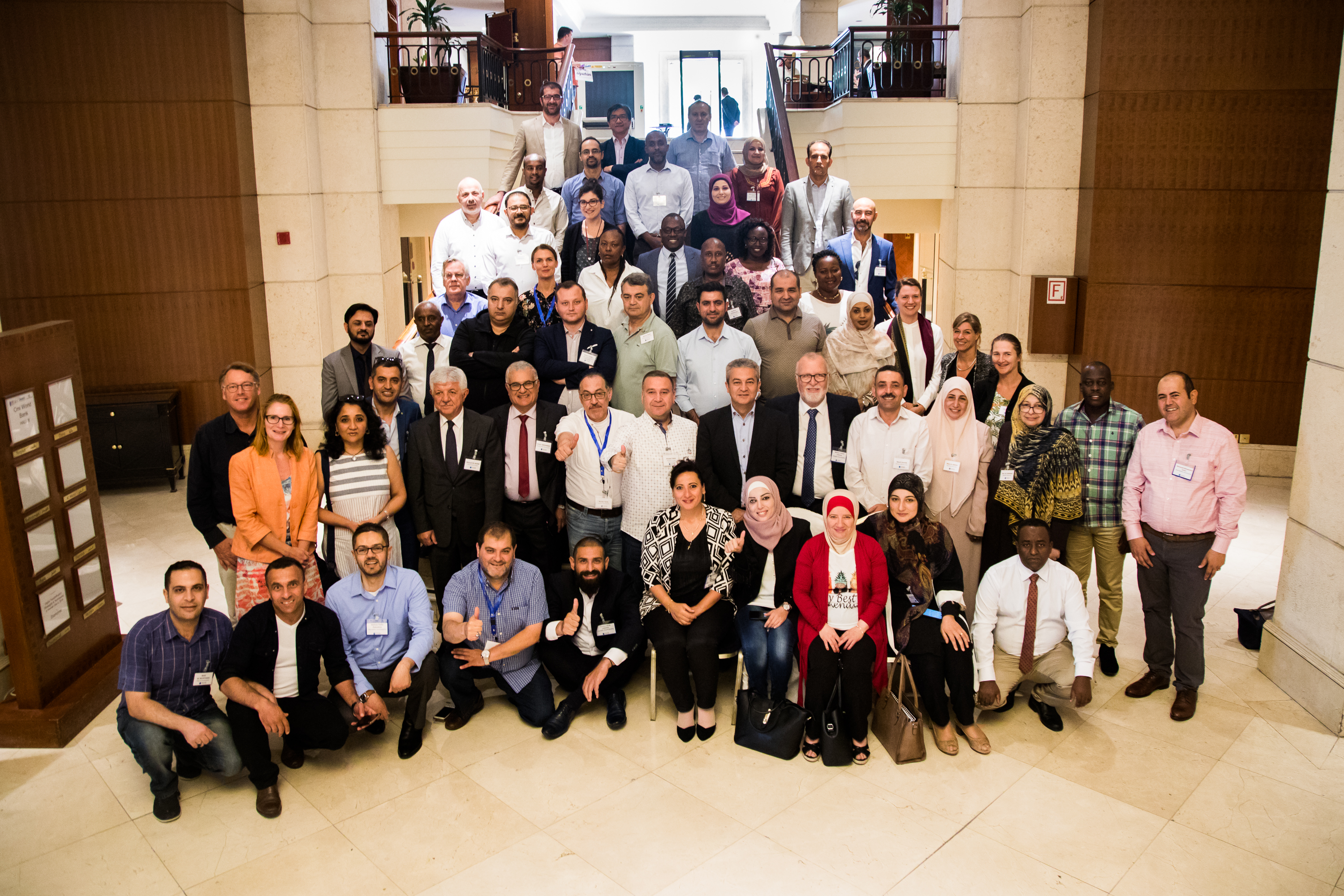
Local economic development in municipalities hosting forcibly displaced people
Forced displacement is among the most pressing challenges in the Eastern Mediterranean region. In the Middle East and Turkey, the Syrian refugee crisis involves humanitarian challenges coupled with significant spillover effects in neighboring regions. After six years of Syrian conflict and displacement, Syrian refugees are seen as medium-term…
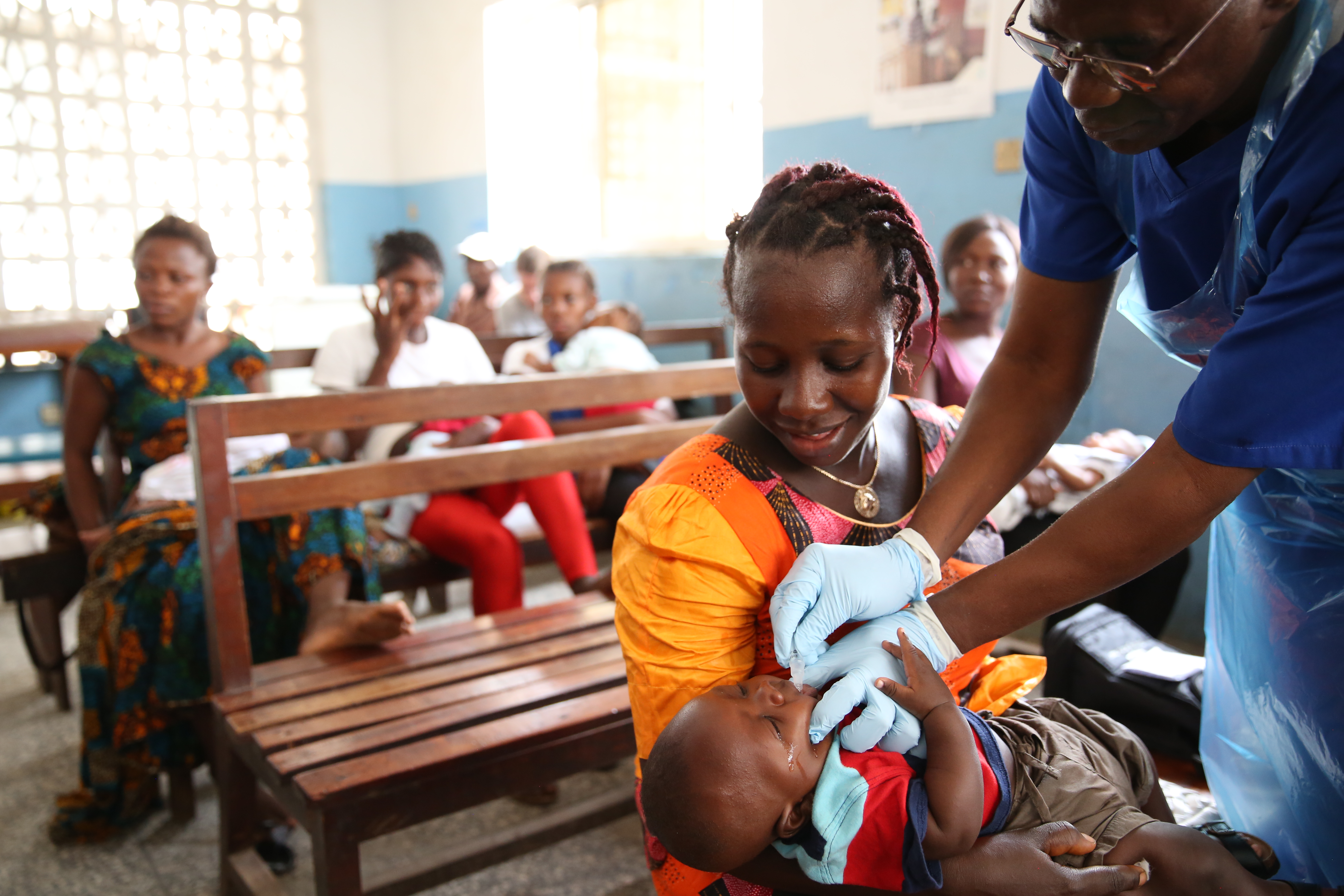
Sustaining and Scaling up Productive Safety Net Systems in Guinea
A delegation of senior officials from the Government of Guinea participated in learning and knowledge activities in Rwanda, focusing on productive safety net systems. The Government of Guinea is committed to investing in safety nets as a key instrument for reducing poverty, protecting vulnerable populations from shocks and promoting resilience.…
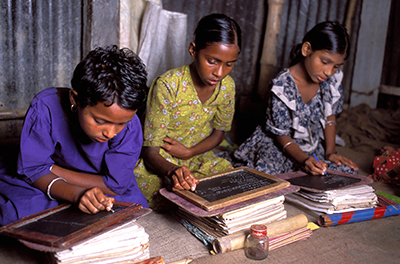
Learning to Build National Research and Education Networks (NRENs) in South Asia
The Internet has become an integral part of the delivery of quality education nearly worldwide, except in countries such as Afghanistan, Bangladesh, Bhutan, and Nepal that lack easy, cost-effective Internet access. Wanting to address this academic isolation and improve higher education, these four countries approached the World Bank for help. In…
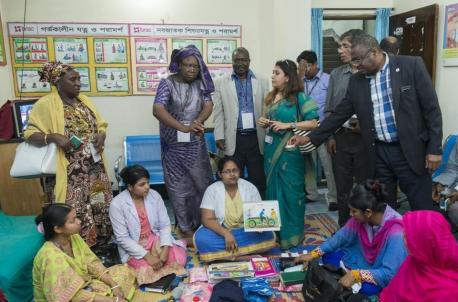
Improving Population Health Outcomes in Africa’s Sahel Region
Many Sahel countries in Africa are expected to nearly double their population by 2030 due to high fertility rates. Meanwhile, since 1970 in Bangladesh, which has a similar religious context and other shared development challenges as the Sahel, the fertility rate declined from 6.3 to 2.3 births per woman and the rate of contraceptive users…
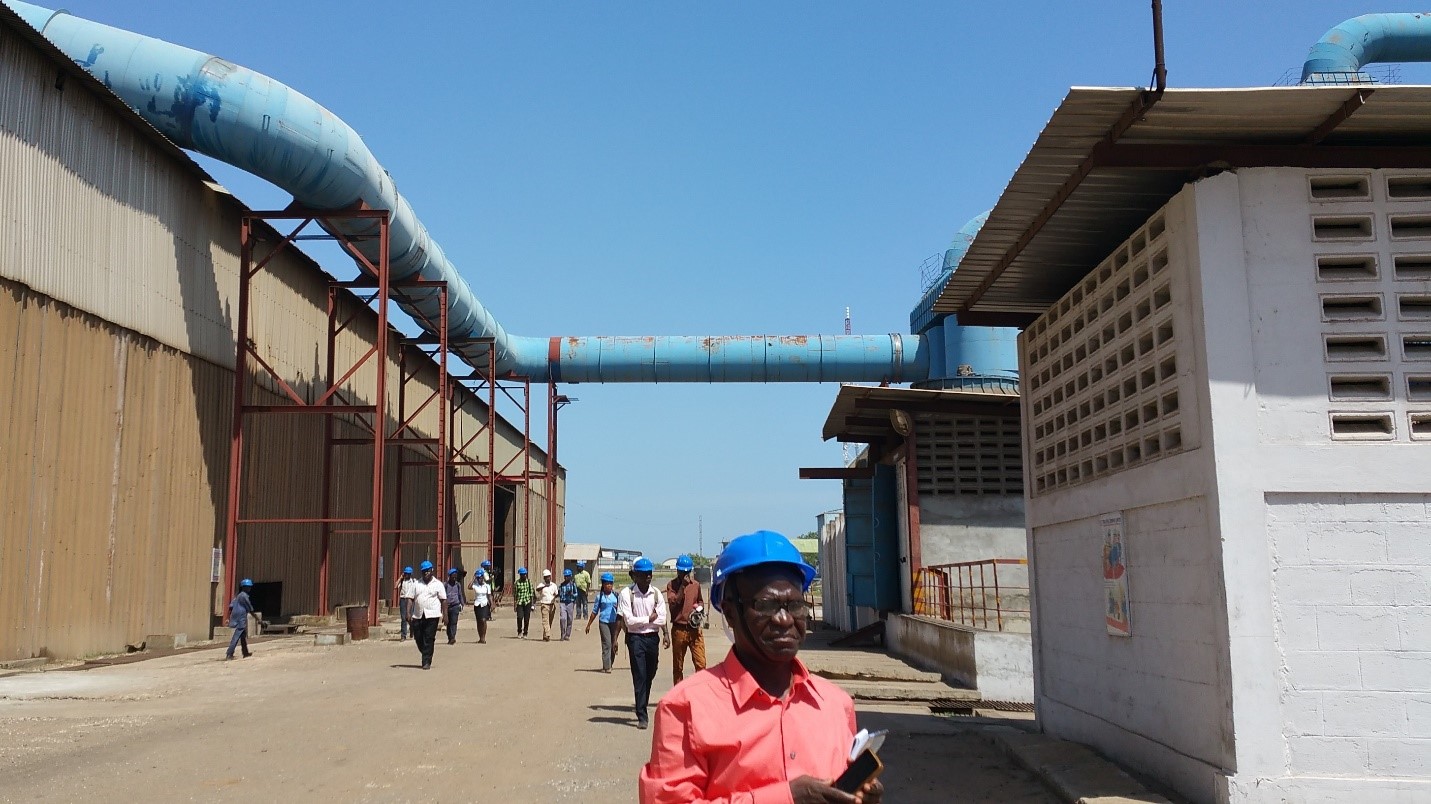
Piloting and Scaling-up Grievance Redress Mechanisms in Social Safety Net Projects in Egypt and the West Bank and Gaza
As project teams in Egypt and the West Bank and Gaza prepared to embark on piloting and subsequent scaling up of grievance redress mechanisms (GRMs) in their social safety net projects, this knowledge exchange with the Philippines was designed to enhance the skills of grievance officers and the complaint handling units of each participating…
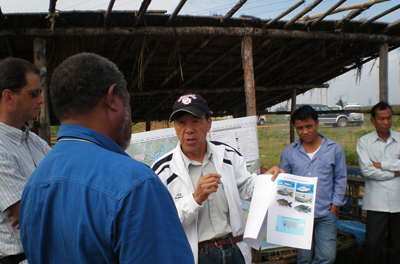
Supporting Hydropower in Papua New Guinea
The Government of Papua New Guinea (PNG) has prioritized tapping renewable energy sources, including hydropower, to increase the share of households with access to electricity from 13 percent to 70 percent by 2030. In 2010, PNG officials began to work with the World Bank to prepare the Energy Sector Development Project (ESDP) to strengthen the…
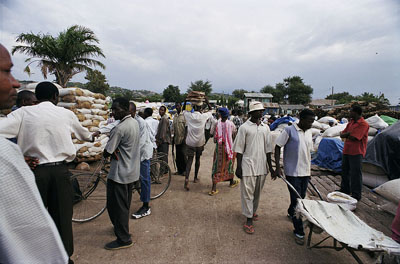
Enhancing Natural Resource Management in Africa
The governments of Cameroon and Ghana wanted to use oil and gas revenues more effectively to promote economic growth and reduce poverty. They also wanted to improve transparency and accountability in the sector. However, Cameroon and Ghana, as well as many other African countries, have had difficulty managing and sustaining the windfall wealth and…

Strengthening Management of Protected Areas in Yemen
In 2008, the Government of Yemen declared the Arabian leopard as its national animal, recognizing the leopard’s endangered status and threats to its habitat, such as human population, prey depletion, and poaching. This declaration focused attention on Yemen’s need to strengthen its management of Protected Areas (PAs), better monitor biodiversity,…
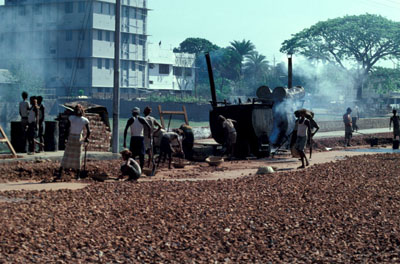
Strengthening Natural Resource Revenue Management and Lowering Volatility in Papua New Guinea
To decrease the negative effects of economic volatility induced by fluctuations in commodity prices and to improve management of natural resource revenues, Papua New Guinea wanted to learn international best practices through exchanges with other developing countries. The World Bank connected Papua New Guinea with Chile and Mongolia to learn how…
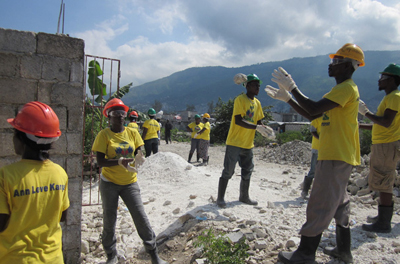
Learning about Community-Driven Development to Rebuild Housing in Haiti
The earthquake that hit Haiti on January 12, 2010 resulted in a massive loss of lives and a complete breakdown of Haiti’s housing infrastructure. The government of Haiti had been unable to invest in long-term reconstruction given its immediate needs for emergency housing. It asked the World Bank for help in learning about community-based…
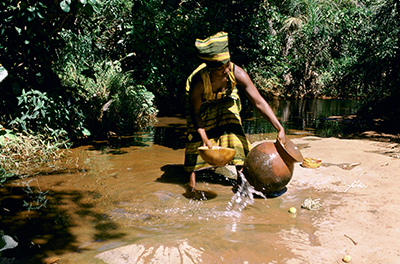
Strengthening Water and Sanitation Systems in Yemen
Yemen faces natural water shortages because of its geographic location. The problem is exacerbated by weak institutional arrangements in the water and sanitation sector. Yemen is striving to address those challenges and achieve sustainable and efficient use of its water resources, which in turn can help the country’s economic development. Upon…

Increasing Access to Clean Water in the Central African Republic
Improving water quality and access is an important objective for the Central African Republic—one of the poorest nations in Sub-Saharan Africa. To deliver service to the nearly 75 percent of urban populations who rely on shallow wells and poor-quality water for their daily needs, the government requested assistance from the World Bank. Using…
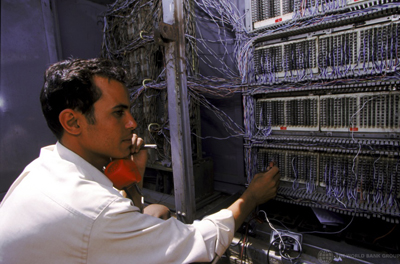
Bringing Electricity to Rural Communities in Yemen
Yemen successfully provides electricity to urban areas, but many rural areas remain underserved. Although the Government of Yemen (GOY) had outlined a rural electrification plan, it lacked clarity on how to create, operate, and supervise the new nationwide Rural Electric Service Provider (RESP) . The GOY also lacked experience starting and…

Reviving Haiti’s Garment Industry through Foreign Investment and Capacity Development
Haiti’s garment industry, responsible for 88 percent of Haitian exports,1 received a crippling blow from the January 12, 2010 earthquake. The Government of Haiti (GOH) gave a high priority to the sector, which is the country’s largest employer, and wanted to attract investment to revitalize exports and create jobs. Through the World Bank’s ongoing…
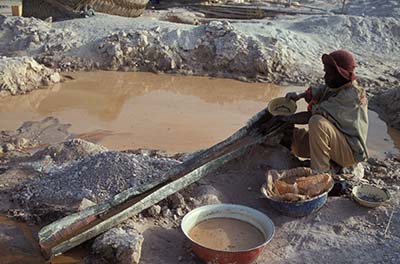
Improving Access to Water in Chad’s Cities
The Government of Chad prioritized increasing water services in urban areas, with a target of 74 percent of households having access to an “improved water source” as per the Millennium Development Goals (MDGs). In 2010, the Government overhauled the water sector, dissolving the national water and electricity company and establishing a new water…

Nepal Learns about Post-Conflict State Building from Rwanda and South Africa
With Nepal’s transition from monarchy to republic in 2009, a decade-long civil insurgency endured by the Nepalese people finally ended. The Government of Nepal (GoN) wanted to learn how other countries had reintegrated combatants into society and successfully increased the role of local governments after similar conflicts. The GoN asked the World…
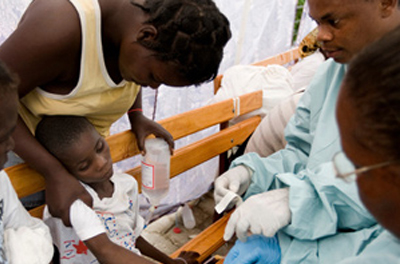
Haiti Scales Up Nutritional Security and Social Safety Nets
Children in Haiti are born into harsh conditions, and malnutrition is widespread, taking a devastating human and economic toll.1 To combat malnutrition, the government of Haiti approached the World Bank for help in strengthening the country’s nutritional security and safety net programs. Haiti chose to participate in a Bank-supported knowledge…
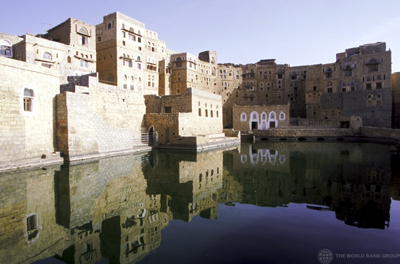
Yemen and China Share Knowledge on Management of Coastal and Marine Areas
Yemen’s 2,250 kilometers of coastline and fisheries provide livelihoods to over 2 million people, but coastal zones have been suffering from lack of management, and fishing production in Yemen has been declining since 2006. China, meanwhile, had successfully accessed World Bank assistance to establish a strong coastal management system that…
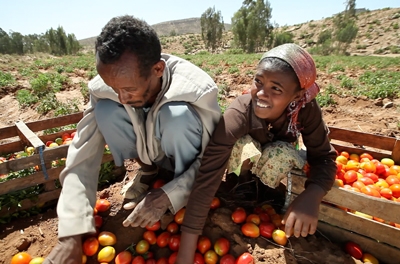
Djibouti Learns about Direct Cash Transfer Systems and Cash for Work
Djibouti was heavily dependent on food and energy imports, while about three-fourths of its population lived in extreme poverty. The government had been exploring alternative ways for alleviating poverty through social assistance programs financed by international institutions, such as the World Bank. It was among the first countries to receive a…
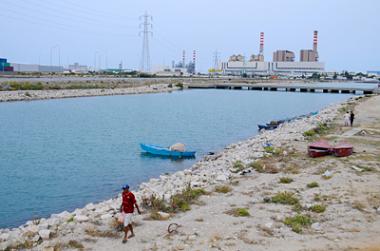
Leveraging Knowledge Exchange to Improve Water Utility Performance
The national water utility in Djibouti faced significant challenges with insufficient human capacity, degraded infrastructure, and out-of-date operations. The Ministry of Finance recognized the need to improve the utility’s performance, and with World Bank support prepared a knowledge exchange with the water utility in Tunisia, which had…
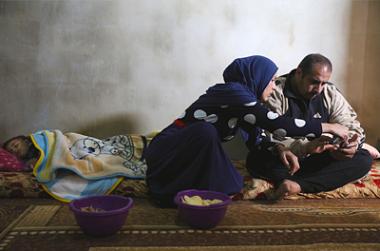
Innovation and Entrepreneurship Capacity Building to Support Mobile Internet Ecosystem in Lebanon
The Government of Lebanon faced a dire environment of unemployment amidst migration of it growing, educated workforce. The Government entered into a knowledge exchange to learn from Chile’s experiences galvanizing multiple stakeholders and developing programs to support an innovation ecosystem that would lead to increased opportunities for…
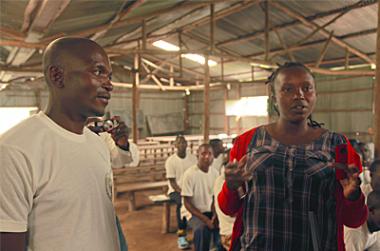
Somalia’s National Programme for Disengaged Combatants Learns from Rwanda’s Experience
To bolster efforts in implementing the National Programme for Disengaged Combatants in Somalia, the World Bank initiated a “Knowledge and Experience Exchange Study Tour” that enabled a delegation from the Federal Ministry of Interior and National Security, African Union Mission in Somalia (AMISOM), and United Nations Assistance Mission in Somalia…
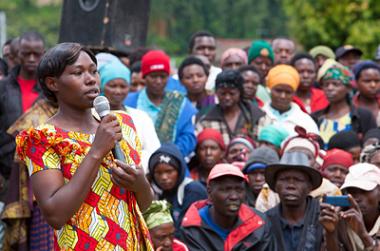
Djibouti South-South Development Exchange Roundtable
The Government of Djibouti recognized the need for a diversified path to economic and social growth that encompassed combatting poverty and enabling a dynamic private sector. Toward this goal it developed its long-term growth strategy, “Djibouti Vision 2035”, and engaged in a knowledge exchange with Cape Verde, Dubai, and Mauritius. The knowledge-…
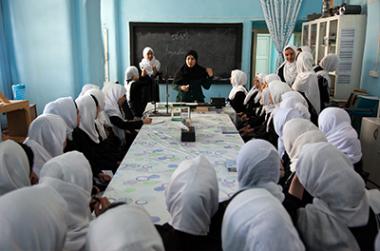
Improving Training and Employment Program Design for Young Women in Afghanistan
Afghanistan’s Female Youth Employment Initiative to transition girls from schooling to wage employment was piloted as one of five Adolescent Girls Initiative (AGI) projects in low-income, conflict-affected countries with input from the Nepali experience. The community-centric project design focused on trauma resolution and life-skills training and…
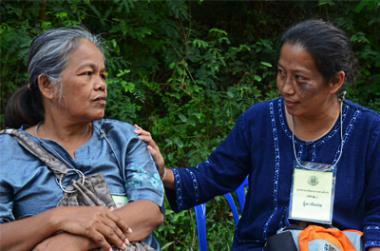
Modernizing Myanmar’s Budget System and Practices: Learning from Thailand’s Successes and Challenges
The Government of Myanmar recognized the need to reform public financial management as part of a broader effort to restore fair and accountable governance, build the country’s economy, and promote national reconciliation after decades of military rule. To modernize and improve budgetary transparency, the Ministry of Finance and Revenue arranged an…
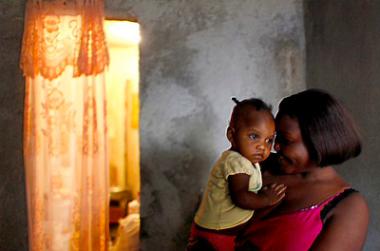
Building the Capacity of Caribbean Countries to Protect and Promote Nutrition of Mothers and Children during Crises
Several Caribbean countries face similar challenges including inadequate policies, interventions, and systems to protect the most vulnerable from the irreversible effects of recurring crises impacting the health and nutrition status of mothers and children. Grenada, Haiti, Dominica, St. Lucia, and St. Vincent recognized their need for assistance…
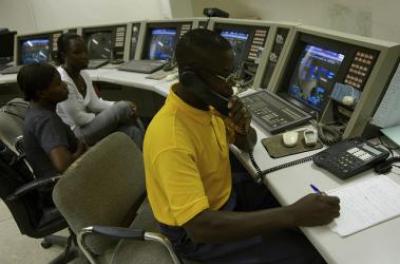
Mozambique: Enhancing Municipal Revenues to Improve Service Delivery
What was the objective of the South-South exchange? : With the largest urban population in Mozambique, the capital city Maputo faces a continuous demand for municipal services. The city is aware that it must increase its own sources of revenue to ensure that services are provided in a sustainable manner. A primary challenge for Maputo has been to…
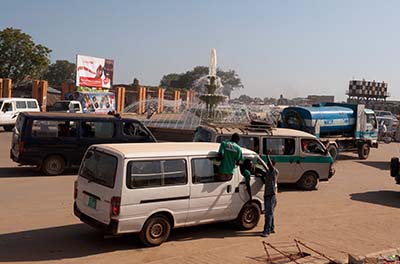
Strengthening Social Protection in South Sudan
The Government of South Sudan sought to reduce poverty and food insecurity, which had persisted through years of social conflict. Authorities prioritized improving social protection policies and initiatives, including programs providing Cash Transfers (CT) to vulnerable households. Country officials, however, lacked knowledge about social…
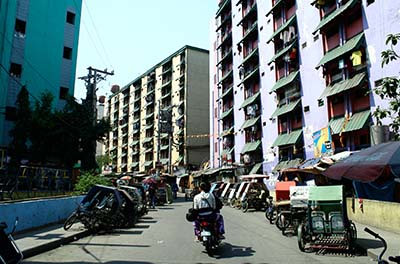
Kosovo Study Tour on Migration Policies
Emigration from Kosovo is among the highest in the world. Many households in the country have a family member living abroad, a situation caused by a poor economy and the armed conflict of the late 1990s. The remittances from those who have emigrated are vital for their family members in Kosovo, ensuring their wellbeing in a country that has some…
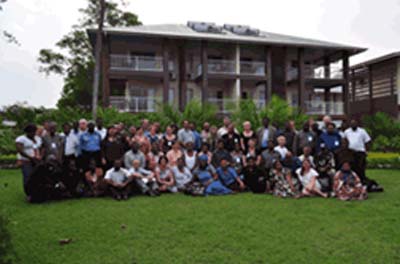
Strengthening Community Justice Systems in Melanesia
Effective and transparent dispute resolution systems are prerequisites to the inclusive development of the South Pacific countries of Vanuatu and Solomon Islands. Besides formal courts, these countries support community justice systems, which blend state and non-state processes and integrate customary law and lay persons as decision-makers.…

 China
China Colombia
Colombia Denmark
Denmark India
India Indonesia
Indonesia Mexico
Mexico Russian Federation
Russian Federation Spain
Spain United Kingdom
United Kingdom